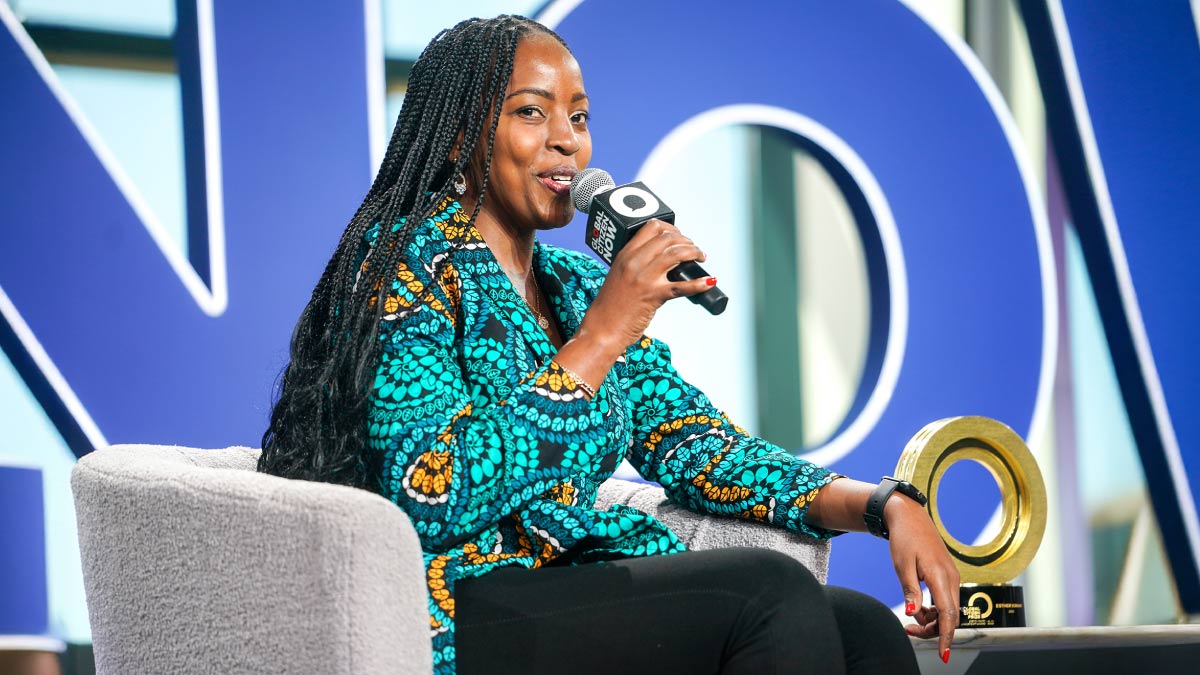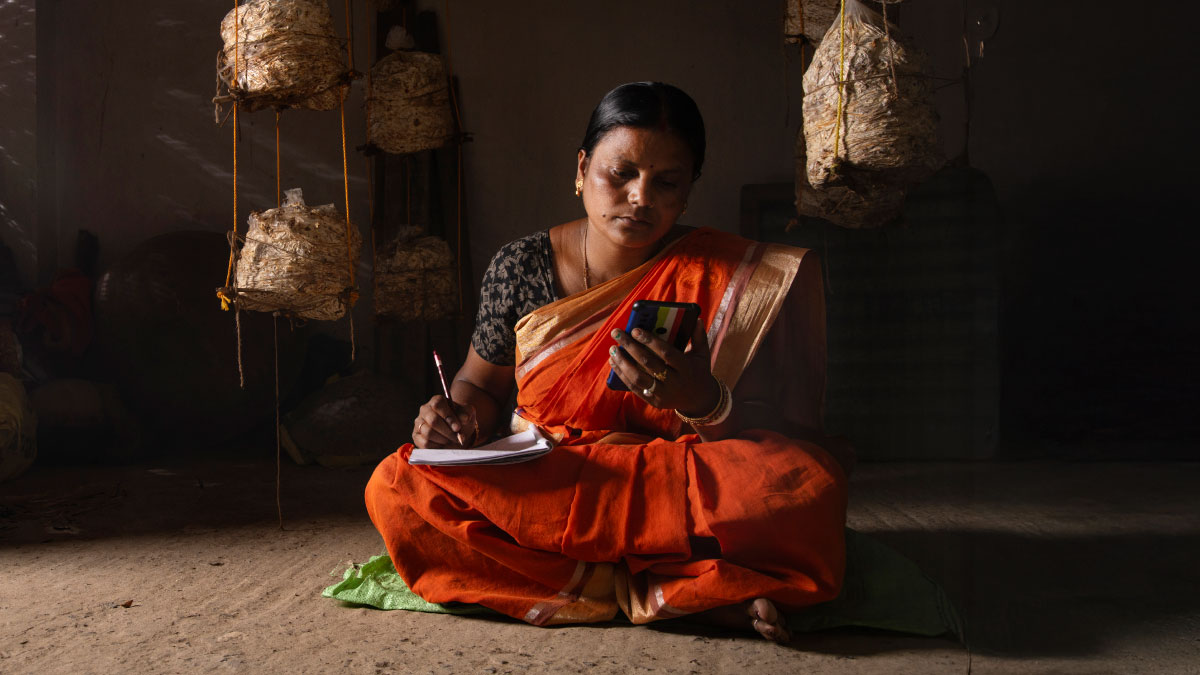As a child on her family’s farm in Kenya, Esther Kimani saw the devastating effects of crop losses firsthand.
“Every season we would lose at least a third of our produce to pests and diseases,” she recalled. “This meant that many of our basic needs went unmet. But my parents were hardworking, and despite the challenges they ensured that I got the best of education.”
That commitment to education helped Kimani become the first member of her village to attend university. Once there, she quickly sensed an opportunity to apply her computer and AI studies to a critical cause.
“When I looked at computer science and the challenges that I had growing up,” she recounted, “I felt a responsibility to find a solution to some of the pressing problems I had seen.”
The result is Farmer Lifeline Technologies, an innovative, low-cost solution that uses solar-powered cameras and artificial intelligence to detect the earliest signs of a threat to crops. It then shares automated SMS prompts and suggestions for relevant action, which in the early stages of an infestation can be natural, traditional remedies instead of pesticides and chemicals. If chemicals are needed, those SMS texts recommend proper dosages to save money and lessen environmental impact.
Kimani’s solution is so impressive it won this year’s Cisco Youth Leadership Award, which includes a financial grant and other support to help scale Kimani’s innovations. Fran Katsoudas, Cisco’s chief people, policy, and purpose officer, and Wyclef Jean, the musical artist and activist, presented the award to Kimani onstage at a Global Citizen NOW summit in New York late last month.
“In 2018, Cisco and Global Citizen joined together with a shared vision of the future,” Katsoudas explained, “a future where young people are solving global challenges empowered by technology and positively impacting the world. The Cisco Youth Leadership Award aims to recognize and lift up those young leaders.”
Katsoudas went on to call Kimani “a young visionary,” while Jean added his own praise.
“This technology not only helps smallholder farmers,” he said, “but it has the potential to help eradicate hunger and end extreme poverty. Esther is passionate about empowering women, and she has a strong desire to create positive change beyond the fields.”
Innovative and accessible
Indeed, Kimani sought to create a solution that was available to struggling farmers — the poorest of whom are often women. So, she ensured that Farmer Lifeline was low cost and accessible via SMS messaging on a flip phone.
The first inspiration for Farmer Lifeline happened when Kimani was an undergraduate studying AI training models. She soon began inputting crop data.
“That was the light bulb moment,” she said in an interview in Cisco’s Penn One office in Manhattan. “It was when I realized that machine learning and artificial intelligence can actually be the solution to detecting crop diseases in time.”
From the start, she knew that most existing solutions were out of reach for poor farmers.
“When you look at other technologies,” she explained, “they're quite expensive. For example, drone companies flying over a farm would charge at least a hundred dollars per hour. To be honest, a hundred dollars could be what a smallholder farmer earns in an entire farming season.”
Kimani’s solution was less expensive — much less.
“We saw a niche opportunity in making technology affordable and accessible for these rural communities,” she continued. “At Farmer Lifeline, we charge a releasing fee of only $3 a month — that’s to have the camera installed on the farm.”
‘Turning steps into strides’
The solution’s low cost, solar power, and SMS access have enabled it to reach 150,000 farmers in five African countries. But Kimani is aiming higher.
“We are targeting 1 million smallholder farmers by 2030,” she said. “And I’m just so honored to receive the Cisco Youth Leadership Award. It's going to help us turn the steps that we've made into strides.”
But she’s quick to add that one million farmers isn’t enough.
“In Africa, we have over 30 million smallholder farmers, and 1 million is a small percentage,” Kimani stressed. “So, we call for all the support to scale all kinds of innovation beyond Kenya to other countries that are also suffering from pests and diseases. Because we lose half of our produce in Africa every year to these kinds of threats; that’s enough to feed 1.2 billion people.”
As a 20-something woman in a traditionally male-dominated field, Kimani has strong views on empowering young people — particularly women.
“I got the best motivation from my parents,” she stressed. “And I believe if more of us got such support, we would see more women in the technology field.”
Nevertheless, she’s expecting great things from young innovators who tap the potential of new technologies like AI (if, she stressed, they use them responsibly).
“I look at the next-generation youth and the next-generation tech,” she said. “And I think people will come up with innovations that we've never seen or even thought of before. I’m very excited.”
Katsoudas, for one, has no doubts that Kimani will be among those most impactful innovators.
“We believe that you're not only going to hit the 2030 goal, but so many more,” she said after presenting the Youth Leadership Award to Kimani. “And we all can't wait to see what’s next.”





